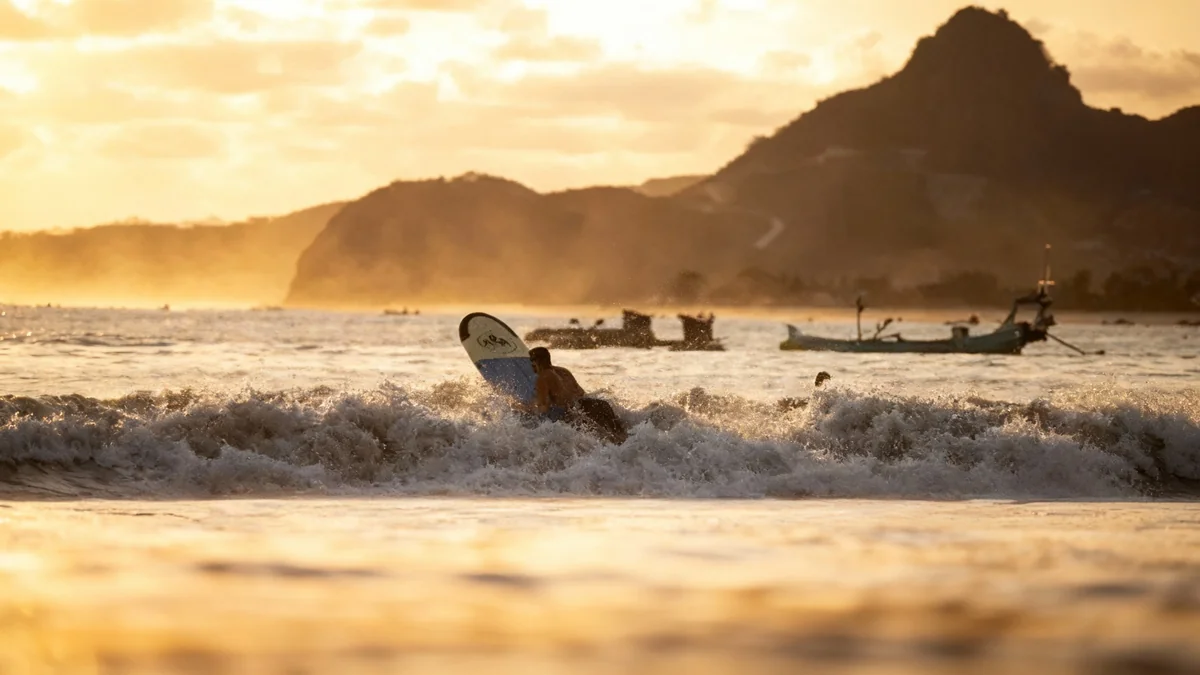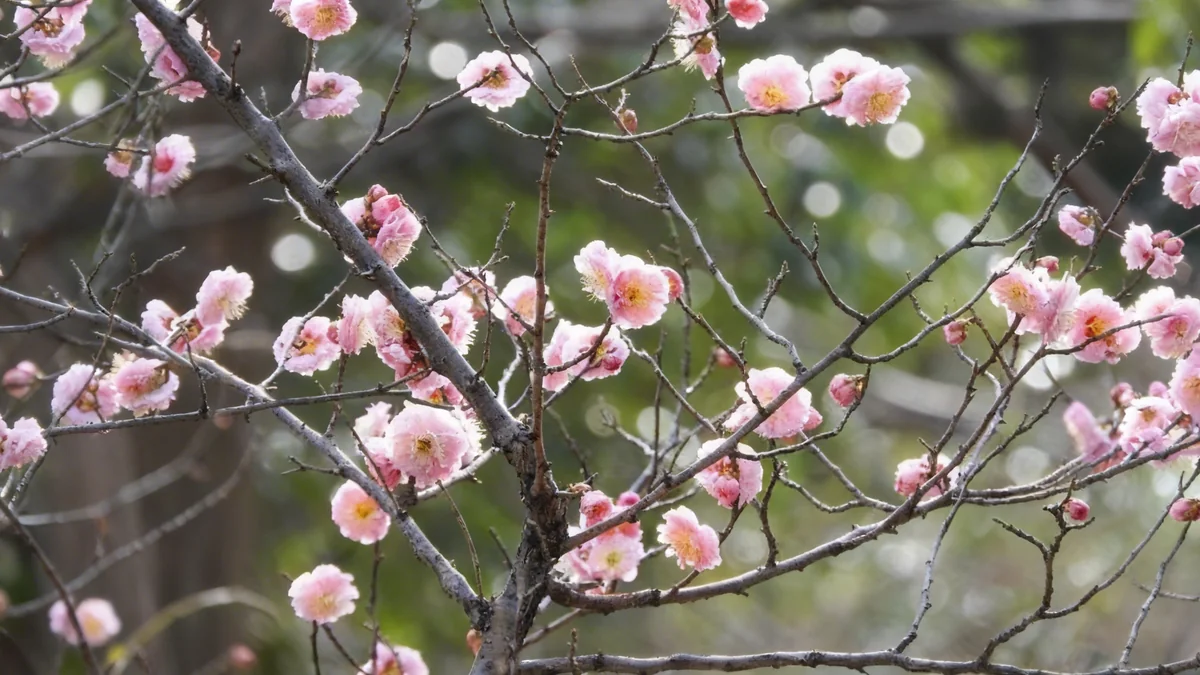Indonesia is actively working to transform Lombok island into a major tourist destination, aiming to replicate the success of its neighbor, Bali. This initiative brings significant development and economic opportunities, but it also raises concerns among some local residents about cultural impact and displacement.
Key Takeaways
- Indonesia is developing Lombok as a new tourist hub, similar to Bali.
- The Mandalika area is central to this development, featuring resorts and a racetrack.
- Development has led to evictions and concerns about local livelihoods.
- Investment in Lombok includes hundreds of millions of dollars and international loans.
- Locals express mixed feelings, balancing economic benefits with cultural and environmental impacts.
Lombok's Rise as a Tourist Destination
Lombok, located east of Bali, offers similar natural beauty with its beaches and Mount Rinjani volcano. For many years, it has been known as a quieter alternative to Bali. The Indonesian government now sees an opportunity to expand its tourism sector beyond Bali, with Lombok identified as a key location for this expansion.
This push is part of a broader national strategy to diversify tourism. Bali has long been the primary draw for international visitors to Indonesia. However, its popularity has led to issues such as heavy traffic and environmental pollution. These problems have sometimes diminished the visitor experience, prompting the search for new destinations.
Quick Fact
In 2022, Bali accounted for nearly half of all international visitors to Indonesia, despite making up less than 1% of the country's land area.
Lombok's appeal is growing. In 2022, Lombok airport recorded 81,500 foreign tourist arrivals. This marked a 40% increase from the previous year. While this number is still far below Bali's 6.3 million international visitors in the same period, it shows a clear upward trend. The government aims to accelerate this growth.
Mandalika: The Heart of New Development
The southern region of Mandalika has been designated as the core of Lombok's tourism transformation. This area, once known for its rustic coastline, now features modern resorts, cafes, and even a large-scale racetrack. The Mandalika circuit recently hosted a motorcycle Grand Prix, attracting nearly 150,000 spectators.
This rapid development has not been without challenges. Between 2019 and 2021, dozens of families were moved from their homes to make way for the circuit's construction. Damar, a 39-year-old surf guide, was among those affected. He recalls feelings of helplessness during the eviction process.
"I was angry, but I cannot do much. I cannot fight against the government," Damar stated, reflecting on his experience.
Damar has since bought land and built a new home. He earns significantly more as a surf guide than he did in his community's traditional fishing profession. He views his involvement in the tourism industry as a positive career choice. "Meeting a lot of people from many different countries… It has opened my mind," he said.
Background Information
The Indonesian government has secured substantial funding for Lombok's development. This includes hundreds of millions of dollars in investment and a $250 million loan from the Asian Infrastructure Investment Bank. This funding supports large-scale projects aimed at creating world-class tourist facilities.
Changes in Kuta and Tanjung Aan
The town of Kuta in Mandalika exemplifies the rapid changes. Former surf hostels have been replaced by luxury accommodations, including resorts with swimming pools and sunbeds. An international school has also been established for expat children, indicating a shift in the local demographic and infrastructure.
However, some locals express caution about these changes. Kartini Lumban Raja, a cafe owner in Tanjung Aan, a nearby beach, voiced concerns about the impact of such development. "When beaches start to look like Kuta, they lose their charm. We lose opportunities. We lose natural beauty," she explained.
Tanjung Aan itself has faced similar development pressures. In July, security forces demolished nearly 200 stalls, including Kartini's, to make way for new projects. Videos from the event showed masked individuals removing structures while stall owners protested. Ella Nurlaila, another stall owner, described the eviction as "truly inhumane."
Local Concerns and Human Rights Issues
The state-owned InJourney Tourism Development Corporation (ITDC) is leading the tourism drive in Mandalika. The company has secured 2.1 trillion rupiah (approximately $128 million USD) for a luxury hotel project on Tanjung Aan. Authorities claim this project will create jobs and boost the local economy.
However, for individuals like Ella Nurlaila and her husband Adi, who sold coconuts and coffee on the beach for three years, the demolitions mean a loss of livelihood. Adi stated that thousands of people depend on coastal land for their income, questioning where they would go to earn a living.
The couple maintained they paid taxes for their stall, which Adi claimed was on his parents' land. ITDC representatives, however, asserted that Tanjung Aan is "state-owned land" and that tax payments do not grant legal ownership. This highlights a key point of contention between local residents and development authorities.
- Just Finance International, a development finance watchdog, has repeatedly reported on "a pattern of rights violations linked to the Mandalika project."
- UN human rights experts estimated that over 2,000 people "lost their primary means of livelihood overnight" due to the Tanjung Aan evictions.
- These experts noted that stall owners received neither "adequate notice" nor "suitable" resettlement plans.
In an August statement, UN human rights experts emphasized, "The people of Mandalika must not be sacrificed for a project that promises economic growth at the expense of human rights."
Cultural and Environmental Impact
Beyond economic and human rights concerns, the transformation of Lombok also raises questions about its cultural identity and environmental sustainability. Lombok is a predominantly Muslim island, home to the indigenous Sasak ethnic group, with thousands of mosques. Its cultural norms are more conservative than Bali's.
Tourists are often encouraged to dress modestly in many parts of the island. Increased tourism could lead to changes in these cultural sensitivities, potentially pushing traditional practices further inland as coastal areas become more commercialized. Some visitors who appreciate Lombok's unique character are worried about this "Bali-fication."
Swiss tourist Basil Berger expressed his concern: "Lombok is so special because it still has its own nature and people come to see that. If they want to see Bali, they [should] go to Bali. Turning Lombok into another Bali is the worst thing that they can do."
Environmental challenges are also emerging. The motorcycle Grand Prix, for instance, attracted 120,000 spectators last year, leaving behind 30 tonnes of waste that authorities struggled to manage. This points to potential strain on the island's infrastructure and natural resources if tourism development is not carefully managed.
Sekar Utami Setiastuti, a Bali resident, suggested that Lombok should learn from Bali's experience. She emphasized the need for tourism development to benefit many people, not just attract visitors. "Lombok has to find its own identity - not just [become] a less crowded Bali," she advised.
Economic Opportunities and Future Outlook
Despite the challenges, tourism has brought new prosperity for many locals. Andrew Irwin, an American investor and co-owner of LMBK Surf House in Mandalika, believes businesses like his create significant opportunities for local employees and their families. He noted that tourism provides chances for higher incomes, better education for children, and improved healthcare.
Many locals have embraced entrepreneurship within the tourism sector. Baiq Enida Kinang Lare, known as Lara, started a homestay in Kuta in 2014 with four rooms. She now operates 14 rooms and is building a separate villa. Her neighbors have also opened homestays, indicating a widespread embrace of new economic avenues.
Lara acknowledges the benefits but also feels a sense of nostalgia for the past. "It's difficult to find time to gather and see everyone. This is what we miss. We feel like the time flies very, very fast because we're busy," she shared. This sentiment reflects a common trade-off found in many developing tourist destinations: the balance between economic gain and the preservation of a quieter way of life.
The transformation of Lombok marks a new chapter for the island. While balancing economic growth with cultural preservation and environmental protection remains a complex task, the drive for development continues. The island's future will depend on how effectively these competing interests are managed.





